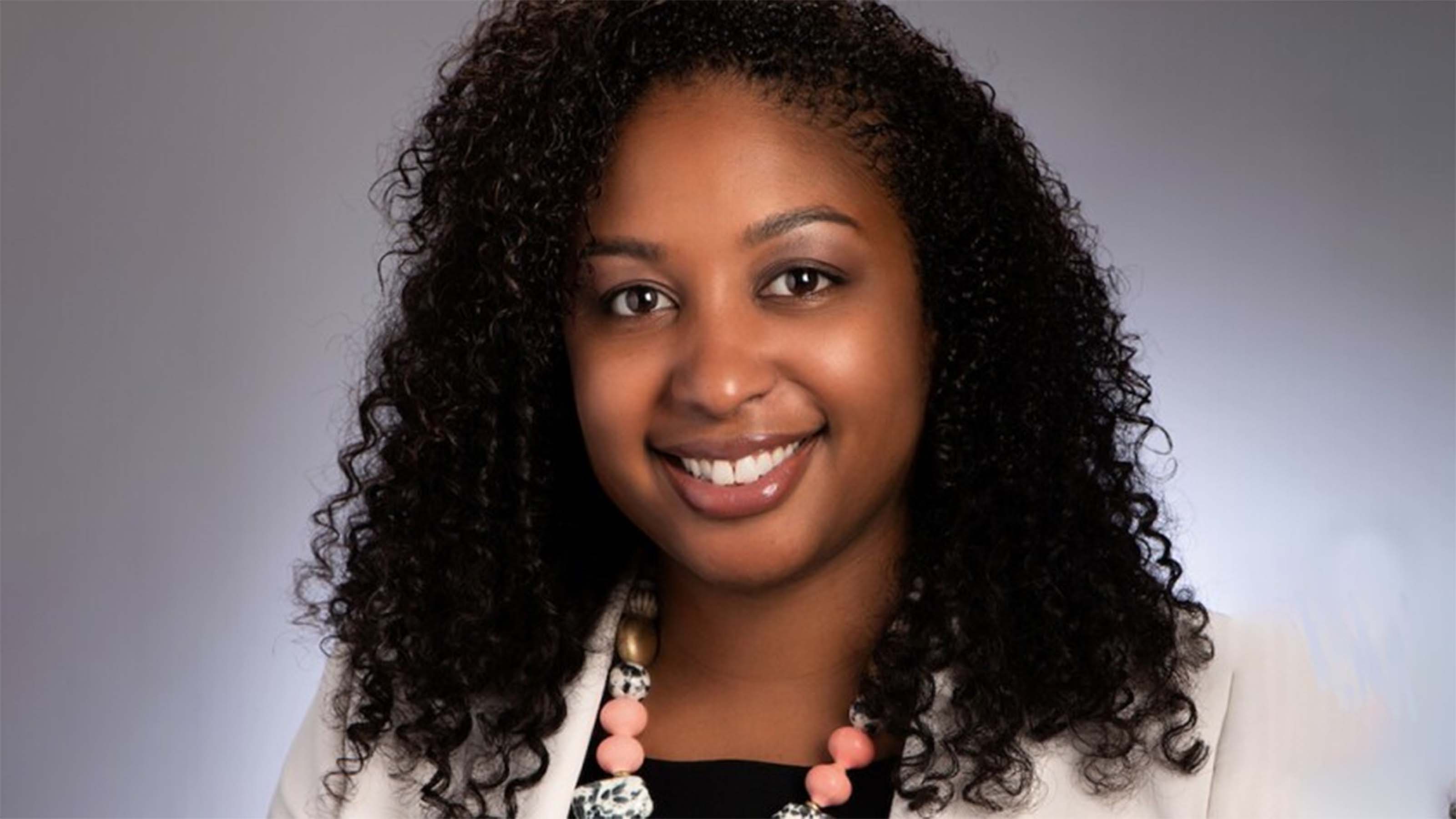Financial Planning Tips for Families From Knight Kiplinger
A gift from the Kiplinger family to yours, just in time for the holidays. Sandy and Ryan sit down for an extended chat with Kiplinger’s editor-in-chief Knight Kiplinger on all things families and finances.

Profit and prosper with the best of Kiplinger's advice on investing, taxes, retirement, personal finance and much more. Delivered daily. Enter your email in the box and click Sign Me Up.
You are now subscribed
Your newsletter sign-up was successful
Want to add more newsletters?

Delivered daily
Kiplinger Today
Profit and prosper with the best of Kiplinger's advice on investing, taxes, retirement, personal finance and much more delivered daily. Smart money moves start here.

Sent five days a week
Kiplinger A Step Ahead
Get practical help to make better financial decisions in your everyday life, from spending to savings on top deals.

Delivered daily
Kiplinger Closing Bell
Get today's biggest financial and investing headlines delivered to your inbox every day the U.S. stock market is open.

Sent twice a week
Kiplinger Adviser Intel
Financial pros across the country share best practices and fresh tactics to preserve and grow your wealth.

Delivered weekly
Kiplinger Tax Tips
Trim your federal and state tax bills with practical tax-planning and tax-cutting strategies.

Sent twice a week
Kiplinger Retirement Tips
Your twice-a-week guide to planning and enjoying a financially secure and richly rewarding retirement

Sent bimonthly.
Kiplinger Adviser Angle
Insights for advisers, wealth managers and other financial professionals.

Sent twice a week
Kiplinger Investing Weekly
Your twice-a-week roundup of promising stocks, funds, companies and industries you should consider, ones you should avoid, and why.

Sent weekly for six weeks
Kiplinger Invest for Retirement
Your step-by-step six-part series on how to invest for retirement, from devising a successful strategy to exactly which investments to choose.
Listen now:
Subscribe FREE wherever you listen:
Apple Podcasts | Google Podcasts | Spotify | Overcast | RSS
Links and resources mentioned in this episode:
- 10 Timeless Financial Tips from Knight Kiplinger
- The Money Talk You Must Have
- How to Talk With Aging Parents About Money
- Kiplinger’s Special Report on Estate Planning
Transcript:
Ryan Ermey: The holiday season is all about family, so Sandy and I invite you to spend some time with ours ... our Kiplinger family, that is. The entirety of today's episode is an interview with the patriarch himself, editor-in-chief Knight Kiplinger. The topic? Families and money, and the important conversations you need to be having with loved ones about your finances. Don't worry ... you can save them until after the eggnog. In the meantime, we hope you're sitting by a crackling fire. It's a Your Money's Worth holiday special. Stick around.
Ryan Ermey: Welcome to Your Money's Worth. I'm Kiplinger Staff Writer Ryan Ermey, joined as always by Senior Editor Sandy Block. And today, we have a special episode. We're talking families and money with the editor-in-chief of Kiplinger's himself, Mr. Knight Kiplinger. Welcome to the show, Knight.
From just $107.88 $24.99 for Kiplinger Personal Finance
Become a smarter, better informed investor. Subscribe from just $107.88 $24.99, plus get up to 4 Special Issues

Sign up for Kiplinger’s Free Newsletters
Profit and prosper with the best of expert advice on investing, taxes, retirement, personal finance and more - straight to your e-mail.
Profit and prosper with the best of expert advice - straight to your e-mail.
Knight Kiplinger: Hey, great to be with you, Ryan.
Sandy Block: So Knight, around this time of year, we get a lot of pitches from financial planners suggesting that the holidays are a great time to sit down with your family and talk about money. You say that's a terrible idea. Why?
Knight Kiplinger: Well, it's a great time if you want to ruin your holiday dinner. I had a grandmother who said you should never talk over the dinner table about politics and religion, to which the rest of us said, "Well, what else is there to talk about?" It's a tempting thing to do, because you've got everybody together in one place, including a lot of sons and daughters, nieces and nephews, who live in far-flung places, and they're all together in one place. But instead of using it for a substantive talk about estate planning and money management over eggnog, where people may be in a bit of a haze, use it as an opportunity to introduce the topic, and say, you know, right after the New Year, let's get together and talk about some family money issues. It shouldn't be a taboo. We'll get together.
Knight Kiplinger: So make a plan. Plant the idea. Introduce it, but don't get granular over the eggnog.
Sandy Block: And I think you suggested that you don't even necessarily all have to get together in the same place, which is often challenging. That through technology, you might be able to do this using FaceTime, or something like that.
Knight Kiplinger: Yeah, you could have a conference call, and you make an appointment for everybody to be there, and that way, you can block out a certain amount of time. And you don't have to wrap everything up in the first conversation. You can meet again later and talk about it. But introduce the topic, and make it known to everybody that it's not a taboo. It's very important, and there are ways to talk about it in a useful way.
Ryan Ermey: So I think many of our regular readers of Kiplinger's, probably regular listeners to this podcast, are probably in that age range where they have young adult children. So what are some of the things that should be coming up in money talks with those people?
Knight Kiplinger: Well, here's how I badger my young adult children. The first thing I did a couple of years ago was say, "You all have a will, don't you?" And they say, "A will? I've been thinking about it." And I say, everybody has to have a will. Some single people think they don't need a will, and I remind everybody, you do have a will. It was written for you by your state. And you might not like that. The single person today marrying late or never marrying may have significant assets, might own a home, and have some savings and 401(k)s. In the absence of a will, that single person's money usually goes to the parents upon the single person's death, and then maybe to siblings. And maybe that single person has other ideas in mind and maybe would like to leave some of that money to a favorite charity, to a close friend. And yes, maybe siblings, as well. So everybody needs a will.
Knight Kiplinger: Then, you get married. You need a will more. Then you have children, and boy, that is the red zone for not having a will, and reinforces the importance of doing it now.
Sandy Block: Because isn't it true that if you don't ... I think a lot of people I know, that has given them an incentive to get a will when they have a children, because if you don't have a will and name a guardian, the courts will name a guardian for your kids, if something terrible should happen to you?
Knight Kiplinger: Exactly. The state has a roadmap for the disposition of everybody's assets, but it may not be the map that you have in mind. It is not difficult, especially for a single person. But it's a great idea to think this through and decide how you want your money disbursed.
Sandy Block: And the other issues is, I know you have grandchildren. What advice should parents be giving to their adult children with respect to their children, or what should they be talking about with respect to their children?
Knight Kiplinger: The first thing they should be talking about is life insurance and long-term disability insurance. Long-term disability people don't think about as much, but the risk of an earnings-impairing disability is actually greater than early death. But let's talk life insurance. Term life insurance for a young, healthy man or woman in their 20s, early 30s is very inexpensive. You can go online, and you can put in all sorts of characteristics, and you can get competitive insurance quotes. There's no reason in the world that a family with young kids shouldn't have a million dollars, two million dollars of term life insurance. It's pure protection.
Knight Kiplinger: Later on, they can look at permanent, whole life insurance if they want, but early on, the moment that first child arrives, think about the cost of rearing that children to adulthood in the event that one or the other income is lost. The life insurance can be a big help.
Sandy Block: Mm-hmm (affirmative). And my experience has been, that, as you mention, it's easier than ever to get lots of quotes. It's very competitive, and remarkably cheap, really, for what you get. If you're healthy and young, you can get a lot of insurance for not a lot of money.
Knight Kiplinger: It sure is. It's inexpensive protection.
Ryan Ermey: So for someone like me, I'm a little bit younger. I don't have kids. I rent. My financial situation, I've been following the time-tested advice of Kiplinger's Personal Finance magazine for a long time, and so I'm pretty secure. But for somebody who's a little bit earlier on, or for somebody who's got kids who are a little bit earlier on, what are the things that really need to be brought up?
Knight Kiplinger: I talk about the concept of paying yourself first. A lot of people say, "Well, I don't have enough money for life insurance premiums. I don't have enough money for a good 401(k) contribution to max out on my employer's match. I don't have enough money for this or that."
Ryan Ermey: Or even an emergency fund, in some cases.
Knight Kiplinger: Exactly. Six months of living expenses in a liquid form. And I say, if you don't have enough, it's because after you pay all those other bills, there's nothing left. Turn that process around. Pay yourself first. An automatic payroll deduction into a savings account. An automatic payroll deduction into a 401(k). An automatic payroll deduction into a mutual fund, brokerage account. Do those, and then live on what's left over. And you might have to look at how much your dining out, your travel, your purchases of the latest consumer electronics, gadgets. All the things that make life fun, but if you fund the important things first, then live on what's left, instead of the other way around.
Sandy Block: And where does a 529 plan fit into that scheme?
Knight Kiplinger: Similar advice for the parents of young children about having enough life insurance. Look out 15, 18 years to the beginning of those college expenses. And it's going to be a very big number. Fortunately, every state in America has a 529 savings plan where your money is accumulating tax-deferred and can be used for those expenses. Grandparents, aunts, and uncles can make gifts to the children through the 529 college savings plan. It's a great thing to do, and I know young couples who have established a 529 for their one-month-old new daughter and new son, and it's a great idea. In our family, we have them for all the little ones, and we talk them up every year. You want to give us a gift? Put it into our child's 529 instead.
Ryan Ermey: So what about sort of family financial conversations that, going in the other direction ... so we talked a little bit about parents dispensing advice to their adult children. What about ones that sort of go in the other way? What do I necessarily have to know about my parents' finances going forward?
Knight Kiplinger: You know, that's a great question. Parents are excellent at giving out advice to their young adult children. The young adult children should have some questions for their parents, too.
Ryan Ermey: I've never even known what my father does for work. Officially. I've really never known.
Knight Kiplinger: That's pretty extreme.
Sandy Block: That's because you're from New Jersey, right?
Ryan Ermey: He's in waste management. What's that ... something weird about that?
Knight Kiplinger: Landfills. You know, it's a really good question. Young adult children have a legitimate right to know something about their parents' situation, because someday, they might have an overly large role in the comfort of their parents, the financial situation of their parents. Parents should be willing to share with their young adult children some of the basics of their financial situation. If they own a home, is there a substantial equity in the home, or have the parents been surreptitiously borrowing that equity in second mortgages and a home equity line? Maybe there's no equity in the home. Have the parents been saving over the years for their own retirement? What are the odds that those young adult children will be called upon, later in life, to support mom and dad?
Knight Kiplinger: The parents might tell their kids about how much life insurance they have, and whether it's going to be sufficient to pay off all the estate bills, and maybe leave something to the children. And this is a conversation that begins to edge into estate planning, which is a whole other thing. But when the parents are giving out advice, in this post-holiday family conference, they should also share and it sets a good example of openness and transparency, and it removes that taboo about talking about money.
Sandy Block: Well, and I think in some of the stories we've written more for older adult children, financial planners have suggested that you should ask your parents what their expectations are with respect to their care as they get older. Do they think that they're going to move in with you? Do they think you're going to live near them? I mean, is that something that people should also be talking about?
Knight Kiplinger: Sandy, that is a great topic of discussion, and it might be a shock that these expectations are quite different. In many cultures of the world, for centuries, it's expected that the adult children will support their elderly parents late in life. They'll move in together. They'll be the caregivers and all that. In western society, we've cut that traditional linkage. And now, most senior people want to live independently, want to live on their own. But that's going to cost a lot of money, and what is the family collectively doing to plan for that eventuality?
Knight Kiplinger: It's a very tricky conversation, but better to talk about it early.
Sandy Block: That's right. And you may even need to be talking to them about, what are you going to do to retrofit your home, so that if you plan on staying ... because that's been my experience. People want to stay in their homes. They don't want to move in with their kids.
Knight Kiplinger: You know, aging in place, in your own home, is a big trend today. It's a big home remodeling subcategory today. And that way, you can use the part-time resources, visiting nurse associations, things of that sort to stop in. Friends and neighbors to stop in. And that's less expensive than assisted living and nursing homes, but it requires a lot of orchestrating and ring-leading.
Ryan Ermey: So I think ... just to sort of wrap the segment up, the advice that one CFP gave me once was have money talks before they turn into money fights.
Knight Kiplinger: Great, great adage. Talk about it early, and then people have some expectation. They have a game plan in place, and they'll learn a lot of interesting things about each other, but the Dutch uncle parental talk about savings, 401(k)s ... You know, never leave your employer's 401(k) match on the table. If you've got to put in 4 or 5 percent to get the most from that match, do what you have to do, and make sure you get that money, as well. And then on top, set up an IRA separate from your employer plan and fund everything to the max.
Knight Kiplinger: Defer gratification today for a more secure tomorrow. Boy, does that sound boring.
Ryan Ermey: Well, speaking of secure tomorrows, we are going to get into another segment on estate planning here, so stick around. We'll be right back.
Ryan Ermey: All right, and we're back with Knight Kiplinger, talking families and money.
Sandy Block: So Knight, we did a piece in the December issue on family money and got into quite a lively conversation among editors and writers about whether parents should give everyone the same amount or divide their estate based on individual situations, and there seems to be a lot of interesting thoughts on this topic. I'm sure you have some.
Knight Kiplinger: A few years ago, I did a Money and Ethics column in our magazine on this topic, and boy, did it generate a lot of controversy, a lot of letters from financial planners, who have real life experience with this. And the issue arises, when among your young adult children, or your older adult children, there are significantly different circumstances in life which might make it reasonable and logical to have variable bequests in your wills. And remember, we're not just talking about bequests and wills, but we're also talking about gifts in lifetime. The assistance that many parents give to their children as young adults and young family household heads.
Knight Kiplinger: Let's think of some of those circumstances. You've got several children. Your son is an elementary school teacher, married, and has three children. Your daughter is single. She's a hedge fund manager in New York and makes a zillion dollars. You have children in various occupations, various levels of income, some are single, some are married. Do you want to treat all of them the same, and divide your estate exactly the same? I posit that there are good reasons for variable bequests and variable gifts in lifetime, depending upon various circumstances. And I haven't mentioned the child who is, what we used to call a n'eer-do-well. That's not a politically correct term these days, but it may be a child with some emotional instability, maybe an addiction problem.
Sandy Block: Substance abuse, yeah.
Knight Kiplinger: Things of that sort, do you really want to give the same cash bequests and the same cash gifts to that person? Maybe that's a situation, if you want to give it all equally, to put some in trusts, so that person can't go to Vegas and blow it. But back to the children and different circumstances in life, I think it's okay to make variable bequests and variable gifts as long as you explain it. You can do this in the will. There can be a side letter in a will or a trust explaining this. And it's very important to say, I love you all equally. I have respect for the occupational choices you've made, your family choices. I have great respect for all of that. But because of the different circumstances, I think you would all understand, it's reasonable that your brother, the school teacher with the three kids, has greater needs than your single sister, the hedge fund manager. And make those decisions on that basis, and explain it.
Knight Kiplinger: One financial planner I know says start talking about this in life, not in the will. That's a little tricky, because you're introducing this, and if there's going to be resentment of your choices, you're putting that right out there pretty early. But that's how I justify it. Now, I heard from financial planners who said, "Knight, that's very well-intentioned. But you're opening a can of worms. There's a risk of resentment among the siblings." And one financial planner said, "Remember, a will is a plan for a particular moment in time." Right now, what if your single daughter, the hedge fund manager gets wiped out in a stock market crash, and it ends up she has less than the school teacher with the three kids. Well, that can happen. You do have to revise plans from time to time. You're not writing a will forever. You should always revisit the plans in your will.
Sandy Block: So I know people who are assuming they're going to get something, and they're sort of maybe not saving as much as they should, or spending more, because they think they're going to get an inheritance. Should parents signal that you are or are not going to receive an inheritance? Because I think your view is that this is ... no one has a right to an inheritance.
Knight Kiplinger: That's a great point, Sandy. It is useful to point out to your children that there is no child offspring right to an inheritance. You can disinherit anybody except your spouse. You cannot, by law, disinherit your spouse. Your estate is going to require that the surviving spouse, get, in most cases, a minimum of 30 percent of your estate. You don't have to leave anything at all to your children, and I hope you've raised them to be grateful for their circumstances in life. There are a lot of parents who think that raising their kids to adulthood, funding their education, funding their music lessons, fostering competency and capabilities in their children is enough. They've done enough, and there isn't any obligation to continue giving their children money thereafter. And that's very valid.
Knight Kiplinger: There's a big vogue right now among the very rich to beat their chest and crow, "I'm not leaving my children anything. I'm leaving it all to charity." Well, when you scratch the surface, you find they're not leaving their children nothing. They're leaving their children a small percentage of a huge fortune.
Sandy Block: Which most people would be grateful to have.
Knight Kiplinger: The crumbs of Warren Buffett's estate would be fine for most people, Bill Gates. And in fact, I've never found a family that left nothing to the children and everything to charity. They usually mean a small percentage. And I get that. In a well-to-do family, leaving two-thirds to charity and one-third to the kids is fine. Now, I also suggest that early in life, you bring your children in on your philanthropic impulses, how you like to give. I know families where the adults have said, "We're leaving a lot of our family estate to charity." We're going to create a donor-advised fund at Fidelity or Vanguard or one of the other big financial service companies or a community foundation. And we'd like to have family meetings where we all sit around and decide where we're going to make our gifts.
Knight Kiplinger: The parents might list one or two of their children as recommenders of grants in the donor-advised fund the family sets up. So they're not leaving the money to the kids, but they're enabling the kids to be civically involved, philanthropic and involved in the disposition of that family gift-giving.
Sandy Block: Knight, this is kind of a legal question, but if you decide that you're going to leave most of your assets to charity or perhaps do something to prevent your ne'er-do-well child from inheriting a lot of money ... are there steps you should take to make sure that your will is actually honored after you're gone? Because you're not going to be around to defend it.
Knight Kiplinger: That's true. A good estate planning attorney will make sure that the vehicles you create are tight. Now there are challenges to estates. Here in the Washington area, there have been some very flamboyant estate challenges. Sometimes, a challenge by a family member to the creation of a big foundation, and the gifting of most of the assets to the foundation ... there have been a lot of challenges like that sort, that pit one heir against the other. Some heirs defending the parents' philanthropic impulses, the others trying to break that impulse. It's tricky, but it's all in the writing of the documents.
Sandy Block: Right.
Ryan Ermey: Also my sister is an estate lawyer, so I'm sure my parents' will is going to be pretty tight.
Ryan Ermey: I think one of my questions is, when you ... getting back to sort of money and ethics is, in a case where you have multiple siblings dealing with elderly parents, is there a consideration, or should there be a consideration of maybe one kid is there being a caregiver, giving their time, giving their ... sometimes their money in order to help care for a parent. Should that factor in to how you're divvying up the estate?
Knight Kiplinger: Ryan, that's a great question, and I think it should factor in. If, late in life, a will is revised and the parents know that over the last decade, an adult child of their who lives nearby rendered enormous assistance, both time and attention and love and maybe some financial assistance in small ways, buying the groceries, that can factor into the disposition of the remaining assets, when the will is revised. Once again, write it in. Explain why it is.
Ryan Ermey: Right. It's not I love you more.
Knight Kiplinger: Exactly.
Ryan Ermey: It's, you've been giving enormous amounts of your time.
Knight Kiplinger: That's right.
Ryan Ermey: That's worth something.
Knight Kiplinger: Siblings who lived far away and were not able to help in that way are often very grateful to the brother or sister who lived nearby and offered that help. They understand it, and they're often very supportive of that sibling getting more in the estate. But I've also seen it the other way around, where they say, "Well, she lived nearby. She could do it. Of course, she should do that, but I still want my exact even share of the assets."
Sandy Block: And it usually is the she, Knight.
Ryan Ermey: I don't know.
Knight Kiplinger: Yeah. It usually is the she, the more nurturing sex, I don't know.
Ryan Ermey: Well, my sister lives closer by, but you know, just by virtue of being closer by, she'll have to figure that out, probably. Well, listen, there's no place like home for the holidays. Everyone's going home. These are talks that people should at least be sort of putting on the table, right?
Knight Kiplinger: I think so. And I think the holidays are a good time to introduce the importance of the subject, generally, and it doesn't mean that you sit down on New Year's Day when some people are hungover and try to have a family meeting about estate planning.
Ryan Ermey: Right.
Knight Kiplinger: But start talking about it, and make it part of the regular family conversation. It's not something just to do once every three years in a conference call. Talk about it regularly. Make it natural. Eliminate the taboo. Be conversational. Be loving. And solicit ideas, you know, throw out an idea. What do you think about this? And you'll have a difference of opinions, but you might hear a better idea than your own.
Ryan Ermey: Well, Knight. Thank you so much for coming on today. Time-tested advice from our family to yours. Thanks again.
Knight Kiplinger: Great. Ryan, thank you. Thank you, Sandy.
Sandy Block: Thank you.
Ryan Ermey: That's it for today's special episode of Your Money's Worth and another huge thanks to Knight Kiplinger for coming on. For show notes and more great Kiplinger content on the topics we discussed on today's show, visit kiplinger.com/links/podcasts. You can stay connected with us on Twitter. On Facebook or by emailing us at podcast@kiplinger.com. And if you like the show, please remember to rate, review, and subscribe to Your Money's Worth wherever you get your podcasts. Thanks for listening.
Profit and prosper with the best of Kiplinger's advice on investing, taxes, retirement, personal finance and much more. Delivered daily. Enter your email in the box and click Sign Me Up.

Block joined Kiplinger in June 2012 from USA Today, where she was a reporter and personal finance columnist for more than 15 years. Prior to that, she worked for the Akron Beacon-Journal and Dow Jones Newswires. In 1993, she was a Knight-Bagehot fellow in economics and business journalism at the Columbia University Graduate School of Journalism. She has a BA in communications from Bethany College in Bethany, W.Va.
-
 Dow Adds 1,206 Points to Top 50,000: Stock Market Today
Dow Adds 1,206 Points to Top 50,000: Stock Market TodayThe S&P 500 and Nasdaq also had strong finishes to a volatile week, with beaten-down tech stocks outperforming.
-
 Ask the Tax Editor: Federal Income Tax Deductions
Ask the Tax Editor: Federal Income Tax DeductionsAsk the Editor In this week's Ask the Editor Q&A, Joy Taylor answers questions on federal income tax deductions
-
 States With No-Fault Car Insurance Laws (and How No-Fault Car Insurance Works)
States With No-Fault Car Insurance Laws (and How No-Fault Car Insurance Works)A breakdown of the confusing rules around no-fault car insurance in every state where it exists.
-
 PODCAST: Tax Breaks for College Finance with Kalman Chany
PODCAST: Tax Breaks for College Finance with Kalman ChanyPaying for College Paying for (ever-pricier) college is a challenge that this consultant meets head on with highly specific guidance.
-
 PODCAST: Car-Buying in an Inflated Market with Jenni Newman
PODCAST: Car-Buying in an Inflated Market with Jenni NewmanBuying & Leasing a Car With cars both scarce and expensive these days, what to do if you want – or need – a new ride? Car-buying strategist Jenni Newman of Cars.com shares some tips. Also, more on the magical 9% savings bond.
-
 PODCAST: How to Find a Job After Graduation, with Beth Hendler-Grunt
PODCAST: How to Find a Job After Graduation, with Beth Hendler-GruntStarting Out: New Grads and Young Professionals Today’s successful job applicants need to know how to ace the virtual interview and be prepared to do good old-fashioned research and networking. Also, gas prices are high, but try a little global perspective.
-
 PODCAST: Is a Recession Coming?
PODCAST: Is a Recession Coming?Smart Buying With a lot of recession talk out there, we might just talk ourselves into one. We take that risk with Jim Patterson of The Kiplinger Letter. Also, dollar stores: deal or no deal?
-
 PODCAST: This Couple Tackles Love and Money as a Team
PODCAST: This Couple Tackles Love and Money as a TeamGetting Married Fyooz Financial, the husband and wife team of Dan and Natalie Slagle, have carved out a niche advising other couples with the money questions that come with pairing up. Also, where is this troubled stock market headed?
-
 PODCAST: Which Documents to Keep, Which to Shred and Which to Scan
PODCAST: Which Documents to Keep, Which to Shred and Which to Scanhome insurance A speedy recovery from disaster can depend on your recordkeeping. Kiplinger’s Personal Finance writer Rivan Stinson tells us how to get our papers in order.
-
 PODCAST: High Gas Prices with The Kiplinger Letter’s Jim Patterson
PODCAST: High Gas Prices with The Kiplinger Letter’s Jim Pattersoncars Why are we paying so much more at the pump? How long will it last? What can you do? Plus: Congress is making changes to retirement-savings rules again.
-
 PODCAST: The Future of Certified Financial Planners with Kamila Elliott
PODCAST: The Future of Certified Financial Planners with Kamila ElliottBecoming an Investor CFPs will tell you (and we’d agree) that not all financial advice is the same. We talk with the chair of the CFP Board about what she’s doing to preserve her organization’s brand and extend its reach. Also, the right way to file your tax returns for free.

